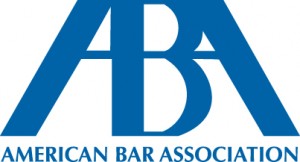ABA Poised To Tighten Accreditation
When a school cannot figure out how to maintain accreditation under such reasonable rules, it should close.
 In the face of financial pressure from rapidly falling enrollment, law schools have made ethically questionable admissions and student retention decisions. Bar exam pass rates have suffered already; MBE scores are at their lowest point since 1988. With an enormous drop in admissions standards between 2012 and 2013, as well as in the two subsequent years, bar pass rates for the next three years will be even worse.
In the face of financial pressure from rapidly falling enrollment, law schools have made ethically questionable admissions and student retention decisions. Bar exam pass rates have suffered already; MBE scores are at their lowest point since 1988. With an enormous drop in admissions standards between 2012 and 2013, as well as in the two subsequent years, bar pass rates for the next three years will be even worse.
The current ABA accreditation standards can theoretically hold dozens of schools accountable through the bar passage standard (Standard 316) and the non-exploitation standard (Standard 501). But the bar passage standard, with its six loopholes, is almost impossible to fail. Meanwhile, the ABA Section of Legal Education is paralyzed without an enforceable line between “capable” and “not capable” — the relevant distinction under the non-exploitation standard.
To the Section’s credit, the organization has responded well to criticism — publicly and privately. At the first meeting after my organization asked the Section’s Council to address trends in law school admissions and retention policies, the Council asked a committee to propose changes to the law school accreditation standards. The Standards Review Committee (SRC) has since made three key recommendations:

The Business Case For AI At Your Law Firm

1) The SRC submitted a new cumulative bar passage standard to the Council. Under the proposal, at least 75% of all graduates that take a bar exam must pass it within two years. This eliminates the six loopholes.
2) The SRC submitted a new interpretation to the non-exploitation standard to the Council. Under the proposal, there would be a rebuttable presumption that a school that experiences a certain percentage of non-transfer attrition has made exploitative admissions choices.
3) The SRC declined to submit new bar passage outcome transparency measures to the Council. Instead, the SRC advised the Council that it already has the authority to issue new transparency requirements under Standard 509. As I wrote previously, I agree and the Council should publish new information as soon as possible.
The Council will consider these proposals at its Friday meeting in Arizona. If satisfied with the first two proposals, the Council will send them out for a few months of notice and comment. If satisfied with the SRC’s analysis of the Council’s existing authority under Standard 509, the Council can immediately take the necessary steps to authorize new disclosures.
Sponsored

Legal AI: 3 Steps Law Firms Should Take Now

Navigating Financial Success by Avoiding Common Pitfalls and Maximizing Firm Performance

The Business Case For AI At Your Law Firm


Navigating Financial Success by Avoiding Common Pitfalls and Maximizing Firm Performance
Changes to Standard 316 and Standard 501 will see significant pushback. While greater transparency may help some students make better choices, the other two proposals provide objective tools to stop law schools from exploiting students. The combination poses a significant financial threat to any school choosing money over ethics to survive. Unless the admissions climate drastically and rapidly changes, these new standards will cause exploitative schools to shrink further, merge, or shut down.
One argument against both standards is the limit on opportunity. Schools can take fewer chances on students who do not fit traditional profiles if bar passage rates and degree completion must be more seriously considered during admissions and retention decisions. Before the enrollment crash that began in 2011, however, schools were able to fulfill these lofty ideals without preying upon students with low expectations of completing law school or passing the bar. The “opportunity” offered to students with low predictors of academic success is failing the bar exam up to four times, accumulating six figures of debt, and never obtaining a law job. This is an opportunity for schools to bring in cash from federal student loans, not to increase opportunities for students.
Educational opportunity is too important to let opportunists capture the term. Reclaiming the term from reckless schools concerned primarily with survival is essential for an accreditation process that’s supposed to protect the public, not the law schools. If a school cannot muster a 75% bar passage rate after its graduates have had the opportunity to take the bar exam four times, the school does not deserve accreditation. If a school must rely on failing significant portions of the class to ensure compliant bar passage rates, the school does not deserve accreditation.
When a school cannot figure out how to maintain accreditation under such reasonable rules, it should close. Let the void be filled by the schools that can responsibly grow enrollment or new schools with new economic models.
Sponsored

Is The Future Of Law Distributed? Lessons From The Tech Adoption Curve

Early Adopters Of Legal AI Gaining Competitive Edge In Marketplace
Kyle McEntee is the executive director of Law School Transparency, a 501(c)(3) nonprofit with a mission to make entry to the legal profession more transparent, affordable, and fair. LST publishes the LST Reports and produces I Am The Law, a podcast about law jobs. You can follow him on Twitter @kpmcentee and @LSTupdates.







